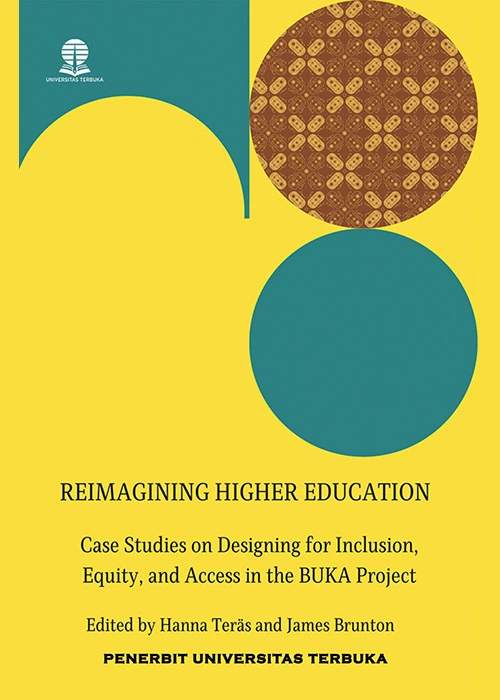
Reimagining Higher Education : Case Studies On Designing For Inclusion, Equity, And Access In The Buka Project
Pengarang: Editors : Hanna Teräs, James Brunton ; Contibutor Author : Adhi Susilo, Aliza Ali, Alizedney M. Ditucalan, Amelia T. Buan, Ana Katrina T. Marcial, Ananda Putra, Bayu Ramadhani Fajri, Cenie V. Malabanan, Chloé Beatty, Dante D. Dinawanao, Daryono, Della Raymena Jovanka, Diki, Hanna Teräs, Harvinder Kaur Dharam Singh, Henri Annala, James Brunton, Jasmine Selvarani Emmanuel, Luisa A. Gelisan, Margaret J. Suarez, Maria Rowena D.R. Raymundo, Marianna Leikomma, Md Rosli Ismail, Nantha Kumar Subramaniam, Nenen S. Borinaga, Patricia B. Arinto, Prakash V. Arumugam, Primo G. Garcia, Rhonna Marie R. Vereña, Ria Mae H. Borromeo, Rohaizak Omar Abd Rahim, Roxan A. Consolacion, Suhartono, Thirumeni T Subramaniam, Ulya Rahmi, Yulianto Santoso Kategori: Publikasi UT Penerbit: Universitas Terbuka Tahun terbit: 2024 Halaman: 122 Kota Terbit: Tangerang Selatan Bahasa: Indonesia Dimensi: 23 cm Tags: buka project | pendidikan tinggi More DetailsThe Industrial Revolution 4.0 has had a tremendous impact on changing the landscape of the business world and the industrial world. The automation and digitization of various production processes and product marketing change the order of HR competency needs tremendously. Various types of work that are usually done by humans are replaced by machines, so that various HR competencies and skills that are usually ‘capital’ to work become irrelevant. Those rapid changes were accelerated by the COVID-19 pandemic which significantly changed the behaviour of economic actors so that it has nourished various online-based business models. As a result, the World Economic Forum (2017) predicts that by 2025 alone around 50% of the global workforce will now have to be reskilling in order for them to do their ‘new’ jobs well. It is anticipated that these changes will continue to take place as technology and business models develop and advance in synchrony. Therefore, it will be necessary to consistently improve human capital without interfering with their ability to perform their jobs effectively.

